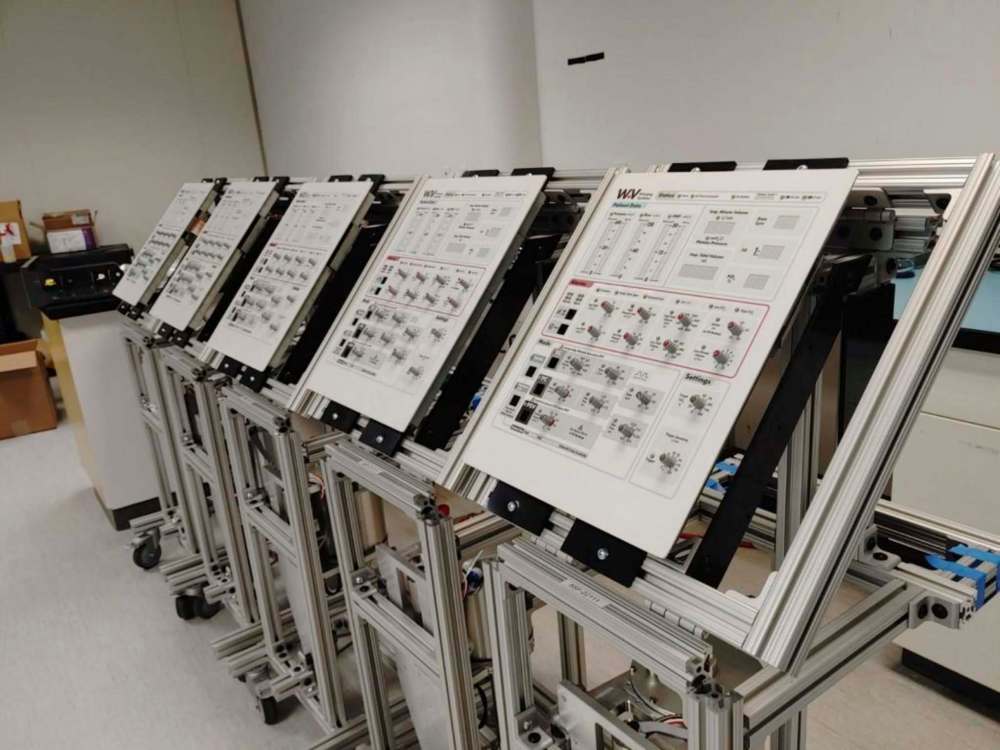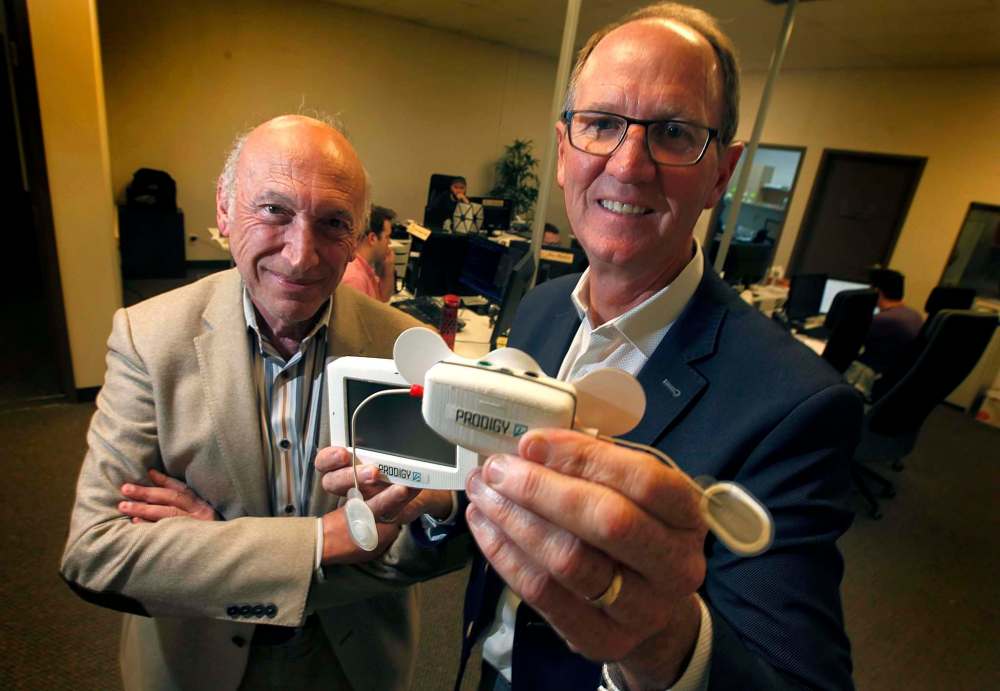‘Winnipeg Ventilator’ awaits approval
Made-in-Canada machine based on tech from device designed at U of M three decades ago
Advertisement
Read this article for free:
or
Already have an account? Log in here »
To continue reading, please subscribe:
Monthly Digital Subscription
$0 for the first 4 weeks*
- Enjoy unlimited reading on winnipegfreepress.com
- Read the E-Edition, our digital replica newspaper
- Access News Break, our award-winning app
- Play interactive puzzles
*No charge for 4 weeks then price increases to the regular rate of $19.00 plus GST every four weeks. Offer available to new and qualified returning subscribers only. Cancel any time.
Monthly Digital Subscription
$4.75/week*
- Enjoy unlimited reading on winnipegfreepress.com
- Read the E-Edition, our digital replica newspaper
- Access News Break, our award-winning app
- Play interactive puzzles
*Billed as $19 plus GST every four weeks. Cancel any time.
To continue reading, please subscribe:
Add Free Press access to your Brandon Sun subscription for only an additional
$1 for the first 4 weeks*
*Your next subscription payment will increase by $1.00 and you will be charged $16.99 plus GST for four weeks. After four weeks, your payment will increase to $23.99 plus GST every four weeks.
Read unlimited articles for free today:
or
Already have an account? Log in here »
Hey there, time traveller!
This article was published 21/07/2020 (1984 days ago), so information in it may no longer be current.
The emergency development of a made-in-Canada ventilator, based on technology from a 30-year-old Winnipeg Ventilator, is substantially complete and is just waiting for regulatory approval from Health Canada.
After Ottawa put out the call in late March for ventilators that could utilize Canadian manufacturing supply chains for potential treatment of COVID-19 patients, Starfish Medical, a Victoria, B.C.-based medical device manufacturing and design company, began working with Winnipeg’s Cerebra Health Inc. and a number of other partners.
Celestica Inc., a Toronto-based multinational electronics manufacturing company, has won the contract to manufacture 7,500 of the uniquely designed Winnipeg Ventilators.

Earlier this summer John Walmsley, Starfish executive vice-president of strategic relationships, said the expectation is that the device will be in production by September.
Walmsley said Starfish is used to making complex electromechanical medical devices and getting them through the regulatory approval process.
“But what was not normal was the nature of the program… to start in March and to have it designed and do the final test at the end of May and to be shipping significant units (by the fourth quarter)… that is outrageously fast,” he said.
The project is being done as part of the federal government’s efforts to have the medical supplies and equipment needed as Canada deals with the COVID-19 pandemic. It is not clear what the total investment to get the project through to this stage has been, but among other investments, it has received $5 million from the federally funded advanced manufacturing supercluster.
Magdy Younes, who designed and invented the Winnipeg Ventilator 30 years ago at the University of Manitoba, is the scientific founder and largest shareholder of Cerebra Health Inc.
Dawson Reimer, CEO of Cerebra, said some of his Winnipeg staff have been embedded at Starfish for the past several weeks.
Reimer said, “Significant progress has been made. This has been a major undertaking but we are not done yet.”
Among other things, the project’s goal was to design a ventilator that could be used in situations where the mainline ventilators were not available and/or in short supply. The decision to use the Winnipeg Ventilator as the design starting point was aided partly because Younes’s original design used many off-the-shelf components and a guiding principle was to produce a ventilator using a non-standard supply chain.
“The goal is to have ventilators available that would not be competing with existing mainline devices,” Walmsley said. “And we have definitely maximized the Canadian content.”
Just about all the components, except for some specialized sensors and some electronic assemblies, will be made in Canada.

It is not clear yet how the ventilators will be deployed. Walmsley said it is a very capable ventilator and the developers are keen to get feedback from respirologists about how well it performs.
“We are talking to specialists and clinician respirologists about the device,” he said. “We are interested in having them use it and experience it and ultimately want to use it.”
While a Starfish subsidiary, called Canadian Emergency Ventilator Inc., will be responsible for the production and distribution of the ventilators in Canada, Cerebra Health will own the rights for the technology for sale in the international markets.
Reimer said Cerebra is in talks with “a handful” of countries and corporate entities representing countries around the world who are still working at beefing up their relative health-care capacities.
Most infectious disease specialists talk about the expectation for a second wave of the virus but at the same time there is some evidence that programs to develop emergency “home-grown” ventilator production in countries around the world are falling by the wayside. For instance, a much-publicized project in the U.K. led by Dyson Ltd. to design and build ventilators there has been cancelled.
martin.cash@freepress.mb.ca
History
Updated on Tuesday, July 21, 2020 9:19 PM CDT: Adds photo

